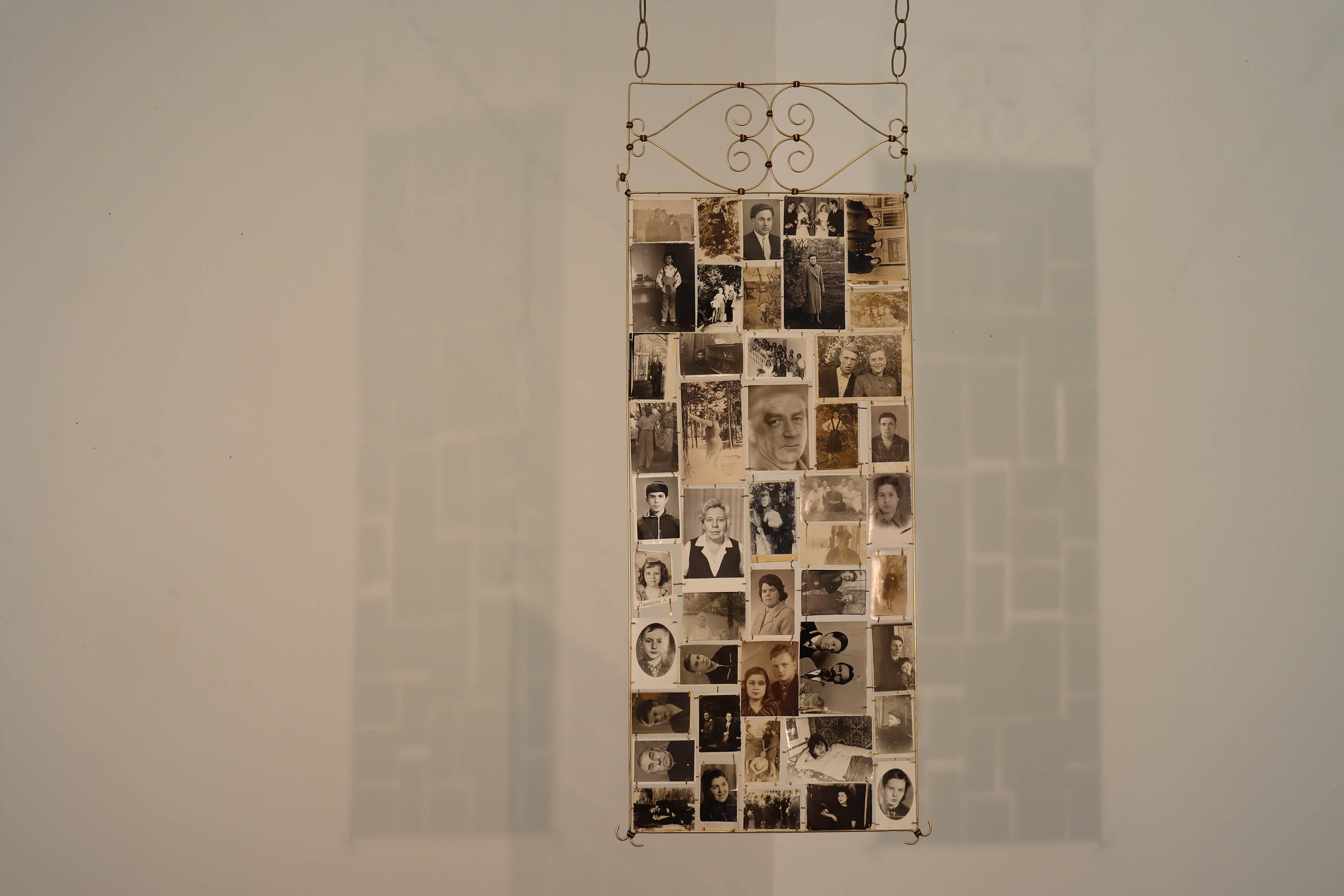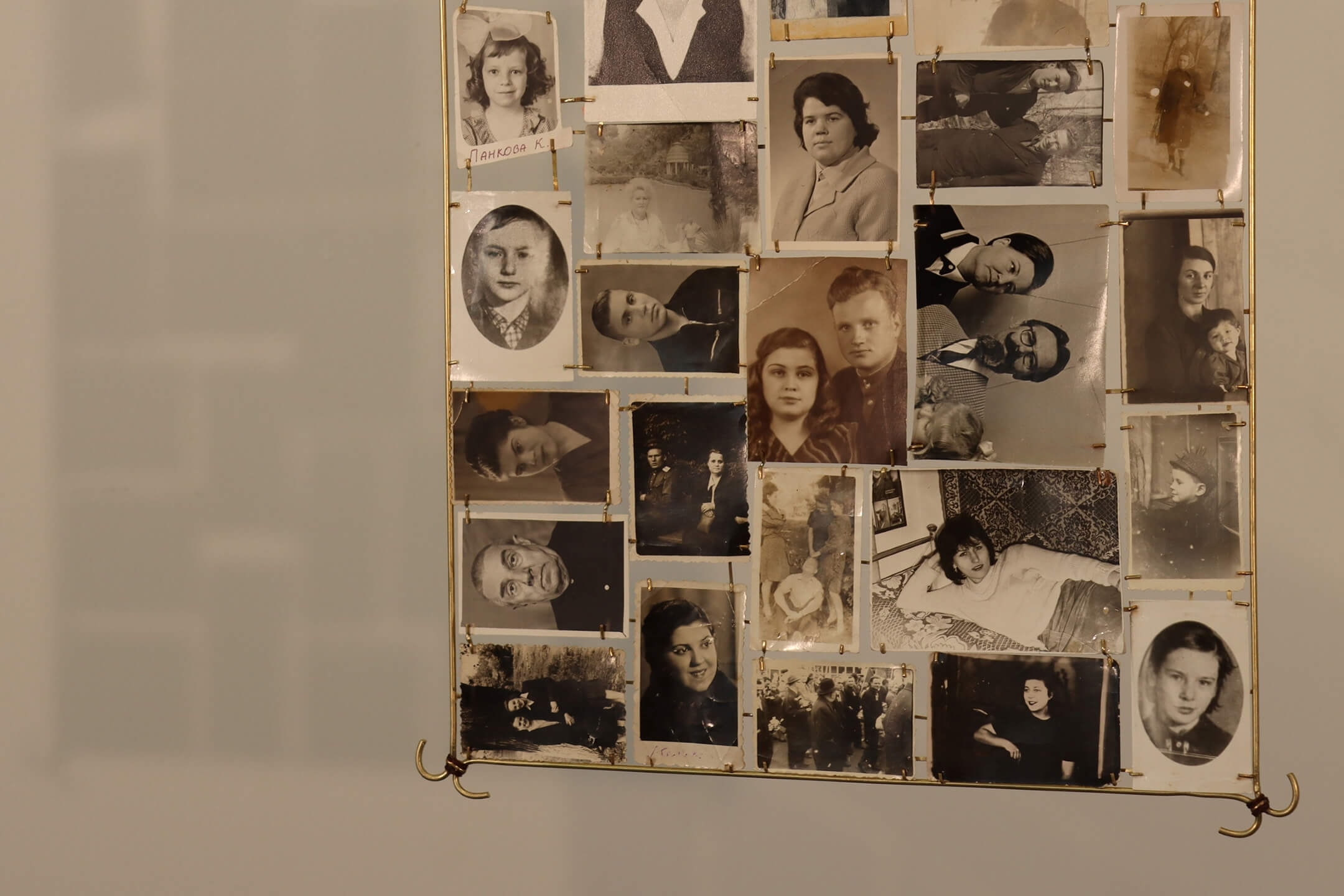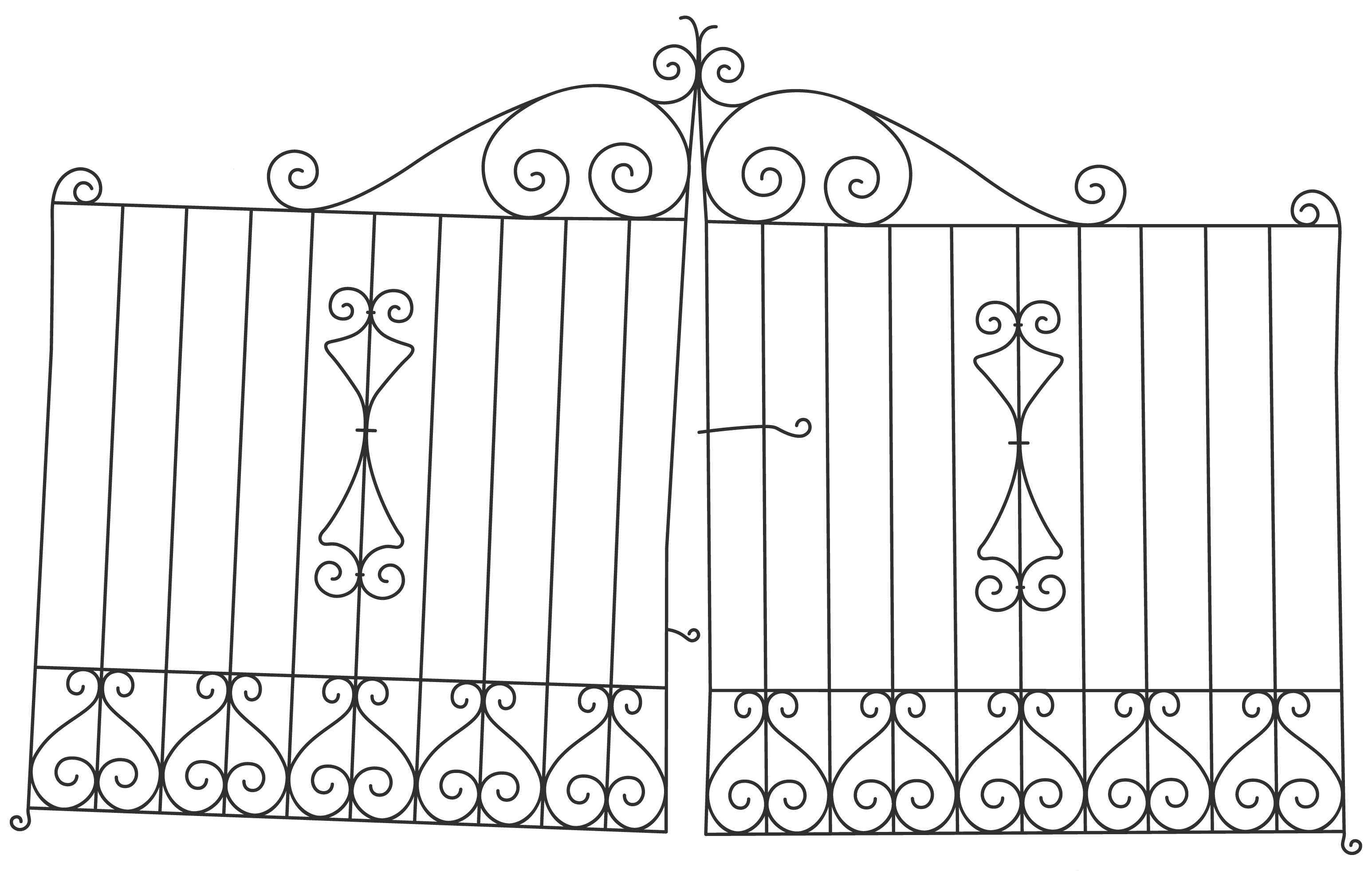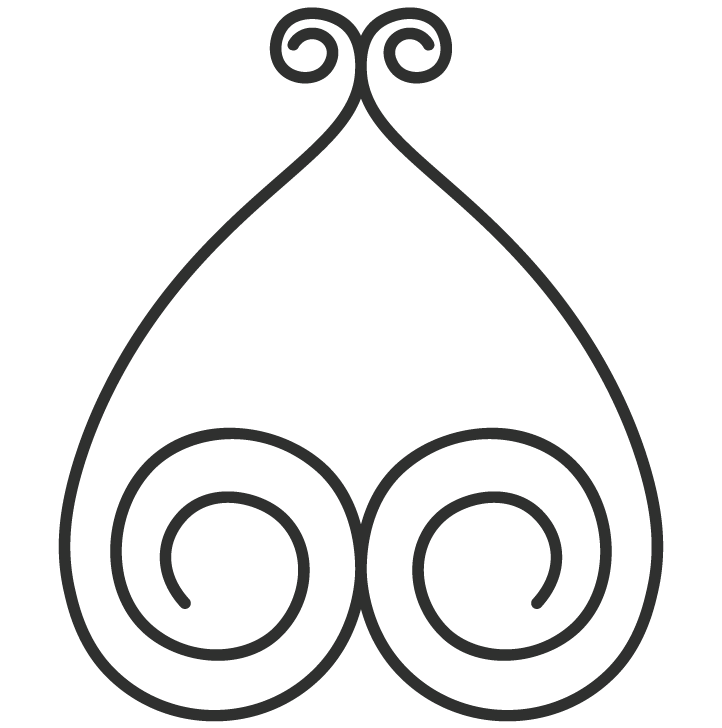

Definition from Oxford Languages
noun
1. a small ornamental case, typically made of gold or silver, worn around a person's neck on a chain and used to hold things of sentimental value, such as a photograph or lock of hair.
Wikipedia defines a locket as: a pendant that opens to reveal a space used for storing a photograph or other small item such as a lock of hair. Lockets are usually given to loved ones on holidays such as Valentine's Day and occasions such as christenings, weddings and, most noticeably during the Victorian Age, funerals.

Brass, half-round wire, solder, horse hair, Soviet era portraits, photo transfer
40" x 16"
Suspended


In Bulgarian, mnogo pozdravi [phonetic pronunciation] is a phrase used to greet a loved one who isn't present in the room. It is commonly used in conversation & over the phone before saying goodbye, as a sentiment.
This work consists of 45 found portraits from Soviet Russia. A photo transfer* on an existing film lives in the center. Brass rod is used to hold these photographs; each one fit & connected with wire bindings unique to form. Where the brass intersects, brown hair is braided over the joints. "mnogo pozdravi" is complete with a claspless chain & suspended, adorned by none.
The frame alludes to wrought iron architecture; a material used to build structures, ships, & landmarks to withstand the wear of time. The anatomical heart has been simplified to become a universal symbol associated with love & life, among other connotations. It is easy to reproduce through a variety of materials including our hands. I reiterate universal--having experienced the iron heart across travels, usually in the form of a fence or gate surrounding the home.
The act of being loved, remembered & cherished is captured in a physical photograph. In this form, "mnogo pozdravi" is a locket entwining the lives of these people--displaced photographs overlapping
* My parents & I outside of my birth hospital [Sofia BG, 2001]

